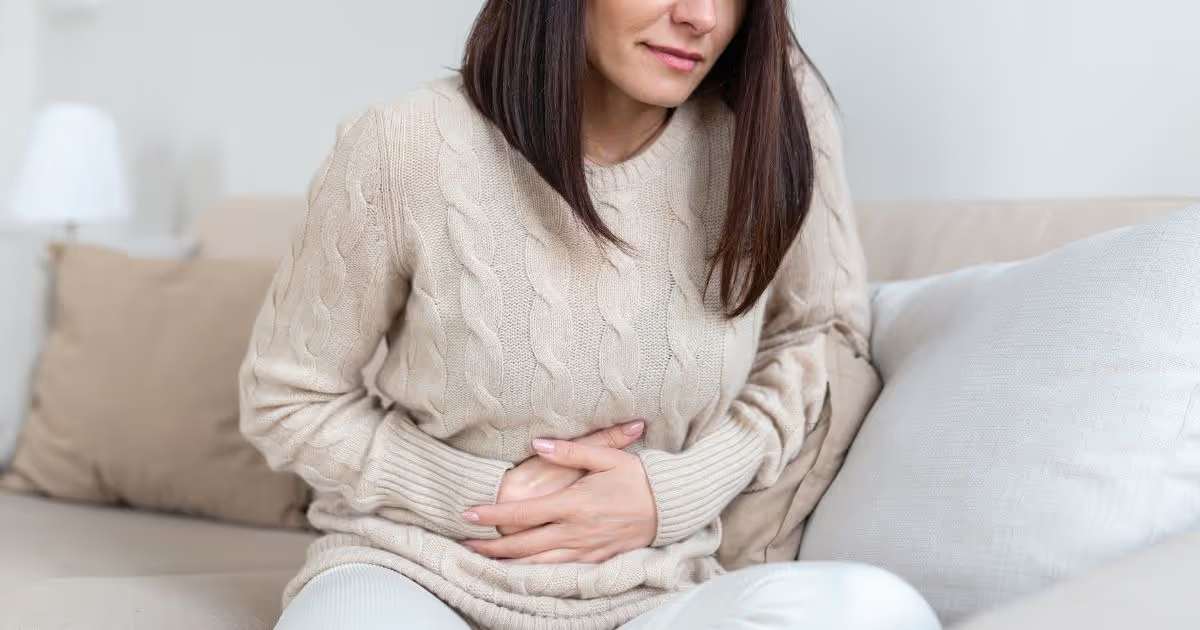Choose the topic you want to read.
- What is Ectopic Pregnancy?
- Symptoms of Ectopic Pregnancy
- Causes of Ectopic Pregnancy
- Treatment of Ectopic Pregnancy
- Prevention of Ectopic Pregnancy
Ectopic Pregnancy
An ectopic pregnancy refers to the fetal implantation that takes place outside of the uterus. Approximately 90% of ectopic pregnancies occur in the fallopian tube. Though less common, ectopic pregnancies can also happen in the ovary, abdominal cavity, or cervix. It is important to note that the fetus cannot fully develop in ectopic pregnancy, and it can become life-threatening, especially if the fallopian tube ruptures. A ruptured ectopic pregnancy can lead to severe abdominal bleeding and even death in some cases.
Symptoms
When you have an ectopic pregnancy, you will experience symptoms of a normal pregnancy with additional symptoms as follows:
- You have vaginal bleeding.
- You experience pain in your lower abdomen, pelvis, and lower back.
- You develop weakness or dizziness.
If fallopian tube rupture occurs, you will develop more symptoms such as hypotension, fainting, and shoulder pain. If your fallopian tube suddenly bursts, you will feel intense pain in your lower abdomen requiring emergency medical attention.
Causes
An ectopic pregnancy is commonly due to obstructed fallopian tube from the following factors.
- You have adhesions or inflammation from previous pelvic surgery.
- Damaged fallopian tubes due to a sexually transmitted infection (STI).
- You have congenital fallopian tube abnormalities.
- You have a mass or tumor in a fallopian tube.
Risk factors
Strong risk factors
- Abnormalities or damage of the fallopian tubes from infections, surgeries, tumors, rare congenital malformations, or reconstructive fallopian tube surgery can increase the risk of ectopic pregnancy.
- History of ectopic pregnancy.
Moderate risk factors
- Gonorrhea or chlamydia can lead to tubal problems, causing an increased risk of ectopic pregnancy.
- Women experiencing infertility have a higher incidence of ectopic pregnancy, primarily due to tubal abnormalities. The use of fertility drugs may further elevate the risk.
Having more than one sexual partner increases the risk of sexually transmitted diseases and pelvic infections, heightening the chance of ectopic pregnancy.
Other risk factors
- Tubal ligation or intrauterine contraceptive devices (IUD) are effective birth control. If pregnancy accidentally occurs, there is a risk that it will be an ectopic pregnancy.
- In vitro fertilization (IVF) can slightly increase the risk of ectopic and heterotopic pregnancy.
Complication
Only the uterus can stretch and expand to accommodate the growth of a fetus. Fallopian tubes or other organs cannot expand to accommodate pregnancies. After implantation on the fallopian tube, the following complications can happen.
- Fallopian tube rupture
- Internal organ damage
- Internal bleeding
- Death
An ectopic pregnancy is a critical medical condition requiring immediate attention.
Diagnosis
An ectopic pregnancy is detectable during a prenatal appointment through multiple tests.
- Urine test
- Ultrasound can display images of intrauterine pregnancy and detect fetal heartbeats.
- Blood tests can help diagnose the level of human chorionic gonadotropin (hCG) hormone, the indicative hormone for pregnancy. If a pregnant woman has an hCG level lower than normal gestation levels or an abnormal rising of hCG, it indicates the likelihood of an ectopic pregnancy.
- Culdocentesis if ruptured ectopic pregnancy is suspected. However, this procedure is out of date now and rarely used.
Women with moderate or high risk for ectopic pregnancies and those who conceive through in vitro fertilization (IVF) will need frequent monitoring through ultrasound and blood testing to help identify ectopic pregnancy at an early stage.
Treatment
As soon as you are diagnosed with an ectopic pregnancy, termination of the pregnancy is mandatory to prevent complications or even death.
Medications
Methotrexate is appropriate for women with low levels of hCG and intact fallopian tubes. Approximately 1/3 of ectopic pregnancies are treatable with methotrexate injection, with a success rate as high as 95%. You may feel abdominal pain or cramps after the injection. Your doctor may prescribe acetaminophen to relieve the pain and discomfort; you should avoid taking nonsteroidal anti-inflammatory drugs such as ibuprofen, as it produces adverse effects when taken with methotrexate. Your doctor will monitor your human chorionic gonadotropin (hCG) level until it becomes undetectable. You may require a repeat methotrexate injection.
Surgery
Surgical treatment is necessary if you have a ruptured ectopic pregnancy or cannot return for monitoring after a methotrexate injection. Open abdominal surgery or laparoscopy will be imperative to remove the ectopic pregnancy and repair the fallopian tube. In some, the doctor may remove the fallopian tube if it is a recurrent ectopic pregnancy, severe tube damage, or uncontrollable bleeding. After the surgery, your hCG level may remain high because of residual fetal tissue. Your doctor will give you a dose of methotrexate.
Prevention
An ectopic pregnancy is not preventable, but you can consult your doctor about the risks. You can minimize the risks by engaging in safe sexual activities to prevent pelvic infections and STIs and consulting your gynecologist before conception.
FAQ
- Can my pregnancy continue after an ectopic pregnancy?
Once an ectopic pregnancy occurs, the pregnancy can't continue to ensure your safety. - Is it possible to conceive again after an ectopic pregnancy termination?
After the termination of an ectopic pregnancy, another successful subsequent pregnancy is possible, but it is advisable to consult with your doctor regarding potential risks. - How long should I wait before becoming pregnant again after an ectopic pregnancy?
You should wait approximately three months to allow the healing of the fallopian tube and help reduce the risk of another ectopic pregnancy. Your doctor can assess your specific situation and recommend a proper timeframe. - Can I still have a baby without my fallopian tubes?
Women are born with two fallopian tubes. If you have undergone the removal of one of your fallopian tubes, it is still possible for you to conceive naturally. If both are removed, in vitro fertilization (IVF) can be an alternative pathway to pregnancy as it bypasses the need for the fallopian tubes.










